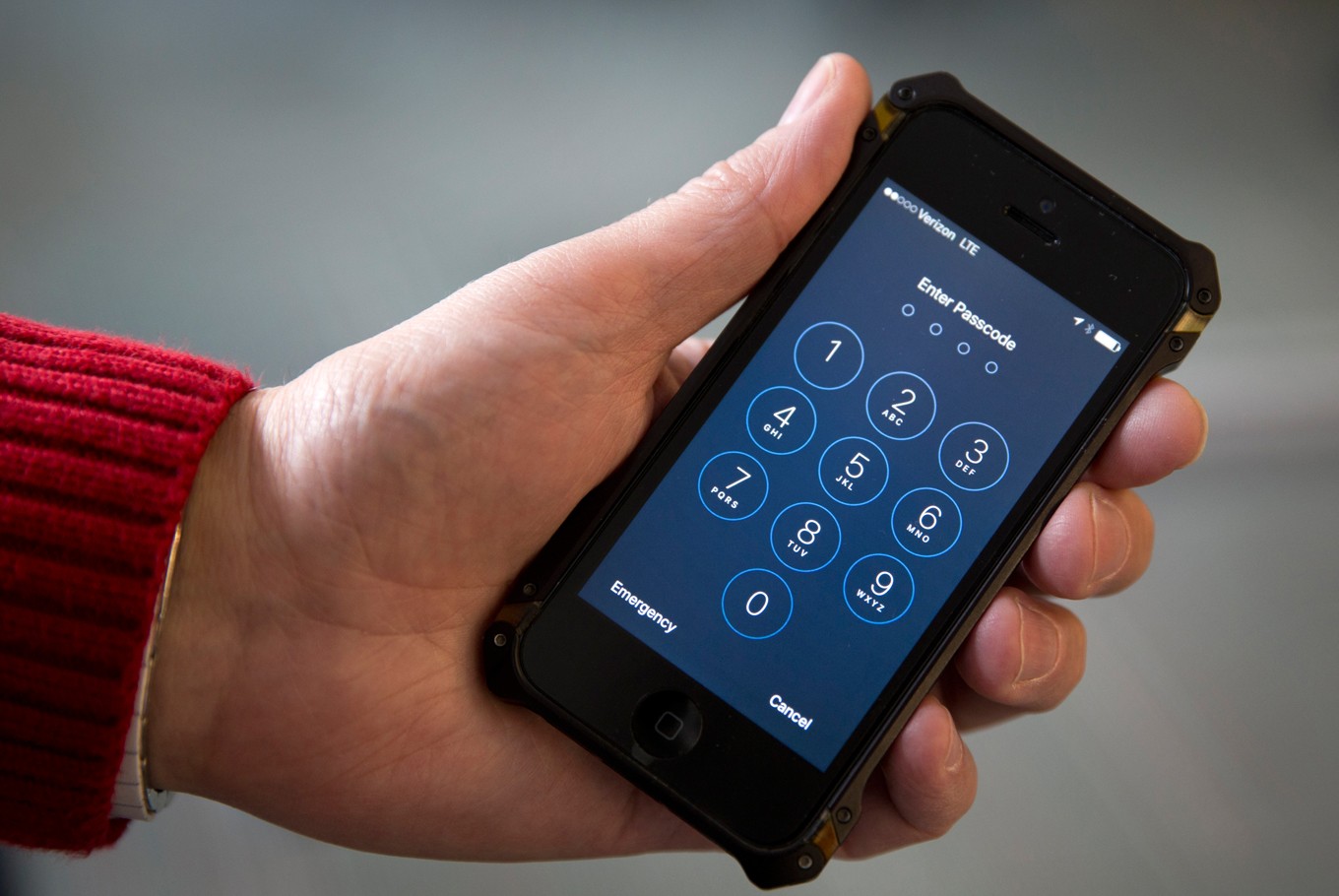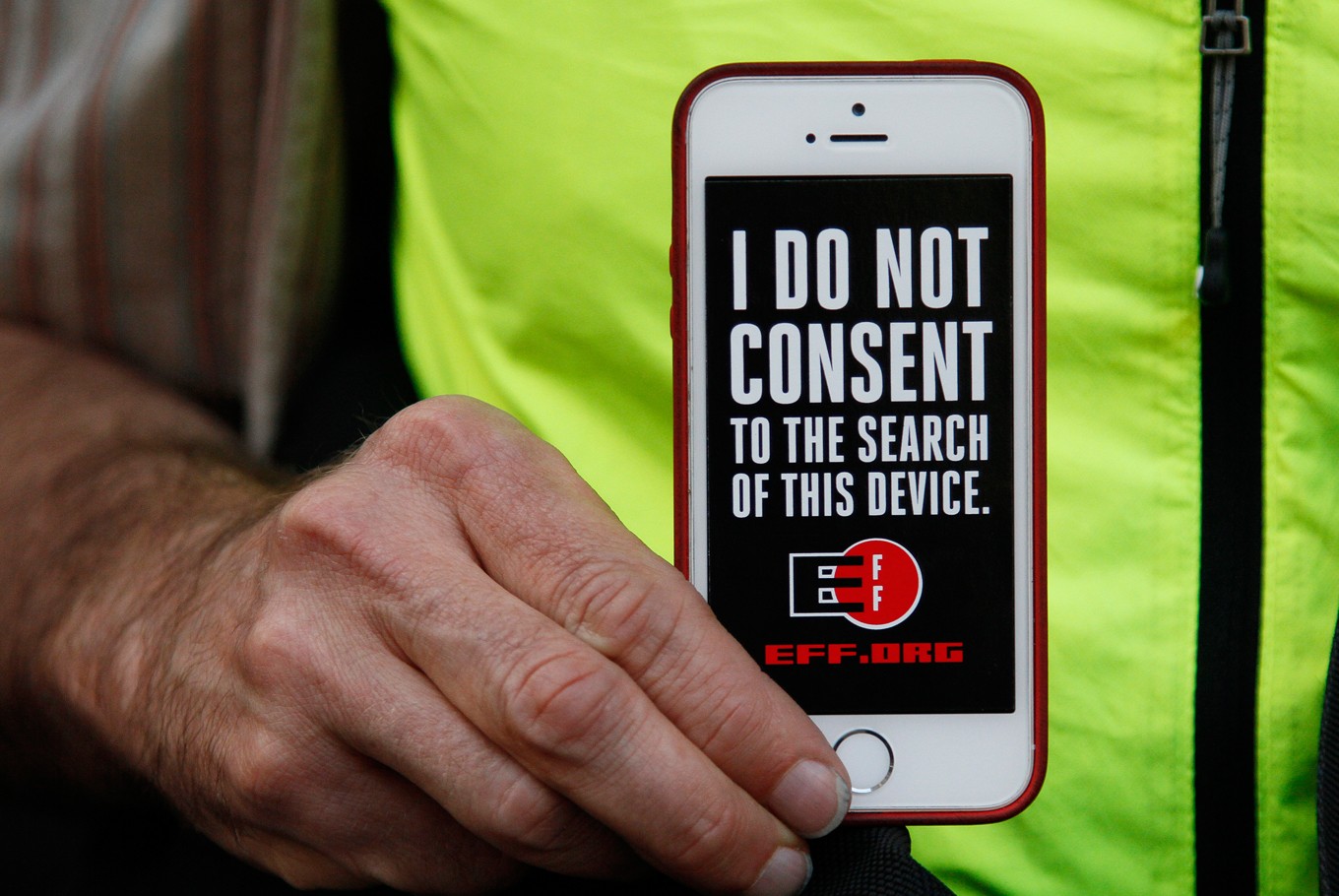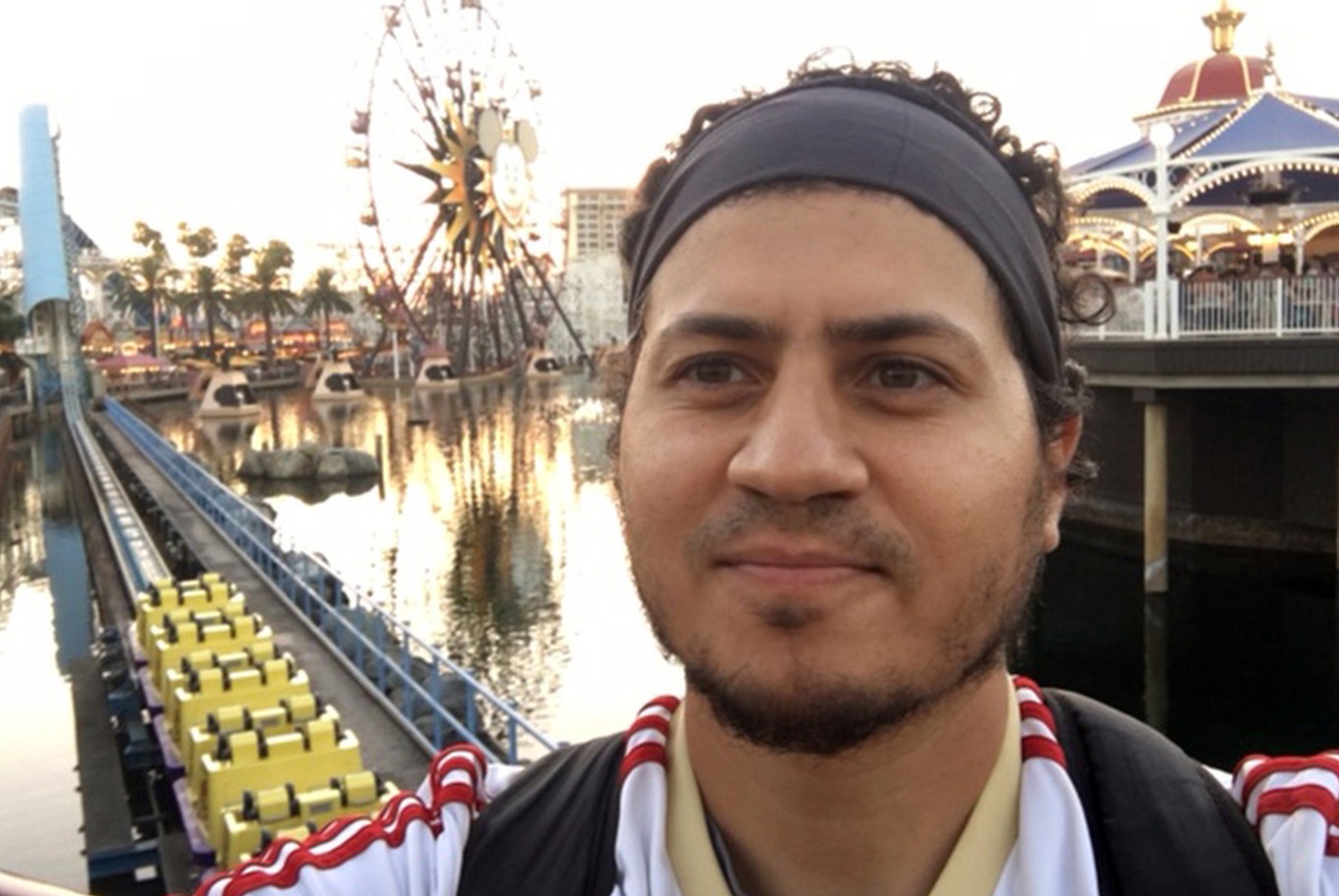Electronic media searches at border crossings raise worry
Change Size
 In this Sept. 11, 2013, file photo, an Apple employee, right, instructs a journalist on the use of the fingerprint scanner technology built into the company's iPhone 5S during a media event in Beijing. Watchdog groups that keep tabs on digital privacy rights are concerned that U.S. Customs and Border Protection agents are searching the phones and other digital devices of international travelers at border checkpoints in U.S. airports. The American Civil Liberties Union and the Electronic Frontier Foundation say complaints of such searches have spiked recently. (AP/Ng Han Guan)
In this Sept. 11, 2013, file photo, an Apple employee, right, instructs a journalist on the use of the fingerprint scanner technology built into the company's iPhone 5S during a media event in Beijing. Watchdog groups that keep tabs on digital privacy rights are concerned that U.S. Customs and Border Protection agents are searching the phones and other digital devices of international travelers at border checkpoints in U.S. airports. The American Civil Liberties Union and the Electronic Frontier Foundation say complaints of such searches have spiked recently. (AP/Ng Han Guan)
W
atchdog groups that keep tabs on digital privacy rights are concerned that U.S. Customs and Border Protection agents are searching the phones and other digital devices of international travelers at border checkpoints in U.S. airports.
The issue gained attention recently after at least three travelers, including a Canadian journalist, spoke out publicly about their experiences.
The episodes have gained notice amid an outcry over President Donald Trump's travel ban and complaints of mistreatment of foreign travelers, but the government insists there has been no policy change in the new administration.
Border Protection says searches increased fivefold in the final fiscal year of the Obama presidency, but still amounted to less than one-hundredth of 1 percent of all international arrivals.
Here are some things to know about the searches and your privacy rights.
__________
WHAT HAS PROMPTED THE CONCERN?
The American Civil Liberties Union and the Electronic Frontier Foundation both say they have noticed an uptick in complaints about searches of digital devices by border agents.
The increase has become most noticeable in the last month, said Adam Schwartz, a senior staff lawyer at the Electronic Frontier Foundation.
"We are concerned that a bad practice that has existed under past presidents has gotten worse in quantity under the new president," Schwartz said.
The government says nothing has changed. Customs officials also say the perceived shift can be attributed to a jump in the number of electronic devices that people are carrying with them and shifting tactics as the agency adjusts to the amount and types of information that can be stored on today's devices.

__________
WHAT SEARCH AUTHORITY DOES THE BORDER PROTECTION HAVE?
Americans have protection under the Fourth Amendment from unreasonable search and seizure.
A police officer, for example, must obtain a warrant from a judge before searching a suspect's phone.
But the U.S. border is a legal gray zone. Border agents have long had the right to search travelers' physical luggage without a warrant, and that interpretation has been expanded to include digital devices, ACLU staff attorney Nathan Freed Wessler said.
In 2013, the 9th U.S. Circuit Court of Appeals ruled that if agents want to do a forensic search they need to have a reasonable suspicion of wrongdoing, he said. But the court stopped short of requiring agents to obtain a search warrant beforehand, he said.
And an agent can flip through a phone in a cursory search for any reason.
The law has not kept up with the "incredible volume of personal data that we have in our pockets now" — and that creates tremendous constitutional questions, said Wessler.
"In some ways, a search of your phone is more invasive than a search of your house," he said.
A case currently headed to another appeals court could further clarify the law, said Schwartz.
(Read also: Annoyed neighbors can now complain directly to Airbnb)
__________
WHAT DOES THE BORDER PROTECTION SAY?
Numbers provided by the Border Protection show a fivefold increase in electronic media searches in the 2016 fiscal year ending on Sept. 30 over the previous fiscal year.
In 2016, under the Obama administration, there were 23,877 electronic media searches. That comes to .0061 percent of total arrivals into the U.S. In fiscal year 2015, there were 4,764 electronic media searches.
A senior CBP official briefed reporters on the issue Friday, but the agency insisted the official not be identified.
"We see it as an article that is brought into the U.S., no different than a booklet of materials, no different than a suitcase with items in it," the official said.
"We've uncovered very serious and significant information in these types of searches, everything from national security concerns to child pornography to evidence of crimes to determinations of people's admissibility status under the immigration laws."

__________
HOW CAN YOU PROTECT YOUR DIGITAL PRIVACY WHILE TRAVELING?
Privacy advocates say travelers who are concerned should leave their phones and laptops at home and buy a cheap phone once they arrive at their destination.
The Council on American-Islamic Relations is also advising its members to do the same.
Those who can't leave their devices behind should encrypt them and close out of all social media applications so they aren't accessible without a password, said Schwartz.
But those steps won't matter much if a border agent asks a traveler to unlock the phone or provide a password, said Scwhartz.
And travelers should also be aware of the rules in other countries. Israel authorities can check mobile phones at the airport, for example.

__________
WHAT HAPPENS IF YOU REFUSE?
CBP can't bar a U.S. citizen from entry if they refuse to comply, but agents can make things difficult.
Travelers who don't unlock their phones could be questioned, detained temporarily and have their phones taken by agents for days.
Travelers who are not U.S. citizens can be denied entry.
Haisam Elsharkawi, a self-employed businessman from Anaheim, California, told the AP that he was stopped by agents in Los Angeles last week as he was boarding a plane to Saudi Arabia to make a pilgrimage to Mecca. They asked him to unlock his phone without telling him why.
Elsharkawi, a Muslim, said he refused because he didn't want the male agents to see photos of his wife with her head uncovered.
When he asked for a lawyer, the agents detained him, handcuffed him and interrogated him for four hours before he agreed to unlock the device for a female agent, he said. He was then released and his phone was returned after the female Homeland Security officer checked his email, photos and eBay and Amazon accounts.
Elsharkawi, 34, was born in Saudi Arabia to Egyptian parents. He came to the U.S. in 2004 and became a U.S. citizen in 2012.
"I was already nervous before and after what has happened ... I don't know what to expect next," he said.
__________
Associated Press Writers Kevin Freking in Washington, D.C. and Josef Federman in Jerusalem, Israel contributed to this report.






